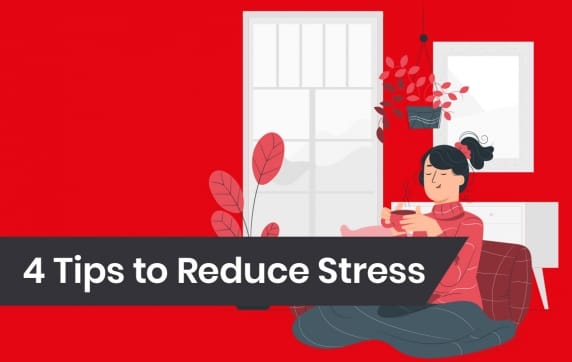Tips to Tackle Stress
It’s National Stress Awareness Month. How apt. With many of us in lock-down, it’s likely that stress and anxiety levels are higher than usual. Without dwelling on the many reasons why this April may be the ideal month to highlight stress awareness, we’ve compiled four actionable tips from our favourite mental health charities to help reduce the pressure.
Laugh.
Laughter is the best medicine, they say, and they’re right. Laughing increases endorphins that are released by your brain, helping you feel immediately happier and improving your mood. The action of laughing stimulates your heart, lungs and muscles, and even helps relax tense muscles to reduce some of the physical symptoms of stress. Longer term, it can help boost your immune system by releasing chemicals into the body that fight stress and illness.
If, like us, you’re finding it a little harder to laugh at life right now, turn to the experts. Whether it’s garlic bread gags from Peter Kay, or parenting ironies from Romesh Ranganathan, there’s a comedian for everyone. Relax with an online performance, a comedy boxset, or a hilarious biography, and you’ll soon have those endorphins flowing.
Take your mind off it.
If you can’t get into mindfulness and meditation, you can still feel the benefits of focussing on the here-and-now without ruminating on the ‘what-ifs’ by finding an activity that involves concentration. With more time on your hands, now might be a chance to pick up an old hobby that you can do from home or in the garden. Being creative is a great way to forget everything and lose yourself in an activity, while gardening is a proven stress-buster – from planting up window boxes to planning a new veggie patch. The immersive nature of playing video games is a great form of escapism and playing online with friends is a great way to unwind and stay connected.
Keep Talking.
Talking is a great way to reduce stress levels. It’s likely that many of us will share the same worries as we face the COVID-19 pandemic and being in lock-down presents a physical barrier to talking with our friends and loved ones. But thanks to video conferencing and video calling apps, it’s easy to connect remotely with friends and family for a catchup.
If you know someone who might be struggling with anxiety or feelings of isolation, let them know you’re there to talk and ready to listen.
Write a List.
Writing lists is a proven way to get your brain functioning better. When we’re stressed and anxious, our thoughts can seem cluttered and our brains foggy. Clearing out your mind by writing a to-do list – preferably before you go to sleep - can help you feel calmer and better able to cope with a task or problem. We can see the tasks we want to do, and the act of writing them down means we get those thoughts out of our heads.
The same works for worries. Putting your concerns down on paper has a calming effect on your brain. You’ll quickly see if the worry is something within your control. If it is, then put down some actions to resolve it.
The NHS offers a wealth of advice on coping with stress or anxiety.




